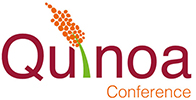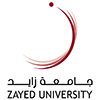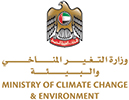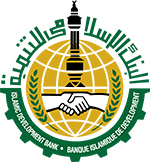Under the patronage of Her Excellency Sheikha Lubna bint Khalid Al Qasimi, Minister of State for Tolerance of the UAE and President of Zayed University

Quinoa for Future Food and Nutrition Security in Marginal Environments
The global population is expected to increase to 9.7 billion in 2050 and there are concerns about the capacity of agriculture to produce enough food for the growing population. By some estimates, food production will need to go up by about 60 percent either through increase in crop yields per unit area or expansion in the arable land by 2050 to meet the demand (World Population Prospects-the 2008 Revision, UN, 2009). Furthermore, several regions already suffering from malnutrition, water scarcity and soil degradation have been forecast to have a large population growth which raises serious concerns about whether traditional agricultural methods and crops species will have the capacity to sustain global food production targets.
Major cereal crops like wheat, rice, barley and corn are progressively failing to withstand increasing salinity and scarce water resources in marginal environments that are most vulnerable to climate change. Therefore, there is an urgent need to identify alternative solutions to sustaining, and, possibly, increasing agricultural productivity in areas where growing traditional crops has become difficult and sometimes uneconomical. Hence, quinoa can play an important role in eradicating hunger, malnutrition and poverty; furthermore, quinoa has an important nutritional value – the seeds are rich in essential amino acids and vitamins. Due to its adaptability to harsh environments including poor saline soils with annual rainfall as little as 200 mm, quinoa could play a major role as an alternative staple crop in marginal environments. Realizing this potential, the United Nations General Assembly declared the year 2013 the “International Year of Quinoa”. The Food and Agriculture Organization (FAO) of the United Nations specifically served as the Secretariat of the International Year of Quinoa. Since then, FAO has conducted activities around the world and particularly in the Near East and North Africa (NENA) region. In the NENA, FAO has implemented a project in eight countries with positive outcomes that have indeed shown quinoa as a potential alternative and profitable crop for the region. Recognizing quinoa’s potential for marginal environments, the International Center for Biosaline Agriculture (ICBA) has been leading a global quinoa program since 2007 in collaboration with national, regional and international research, government and donor organizations in the NENA region as well as Central Asia.
Despite the growing global recognition of quinoa’s potential, and positive research outcomes in pilot studies, there are still many constraints and issues to be addressed before quinoa becomes a crop of choice in marginal areas where other major crops have so far been dominant but are now failing due to climate change and degradation in the quality of soil and water resources.
Key challenges are:
- Limited availability of genetic material for cultivation outside its indigenous environment
- Limited knowledge of the best management practices – especially nutrient and water requirements, pest and disease control, harvesting and processing under marginal growing conditions
- Little awareness about quinoa’s nutritional benefits and the intricacy to incorporate it into local diets in regions outside the Andes
- Lack of suitable marketing channels where the farming communities could sell their produce
Recognizing the need to better understand and resolve these challenges and to fully exploit the potential of quinoa, the International Center for Biosaline Agriculture (ICBA) in collaboration with the Ministry of Climate Change and Environment of the United Arab Emirates, Zayed University, the Islamic Development Bank (IDB), and the Arab Bank for Economic Development in Africa (BADEA), with the technical contribution of the Food and Agriculture Organization of the United Nations (FAO) will convene the international conference “Quinoa for Future Food and Nutrition Security in Marginal Environments” in Dubai, the United Arab Emirates, on December 6-8, 2016. This conference will provide a unique platform for discussions on ecological, economic and social aspects related to introducing quinoa for sustainable agricultural production in marginal environments.
The conference will:
- Bring together leading scientists, practitioners and decision-makers from the public and private sectors in a mix conducive to innovation and technology transfer
- Explore opportunities for collaboration between the public and private sectors
- Showcase the latest developments in quinoa research, production and trade around the world
- Highlight quinoa uses and niche market opportunities
- Connect young professionals to experienced professionals









